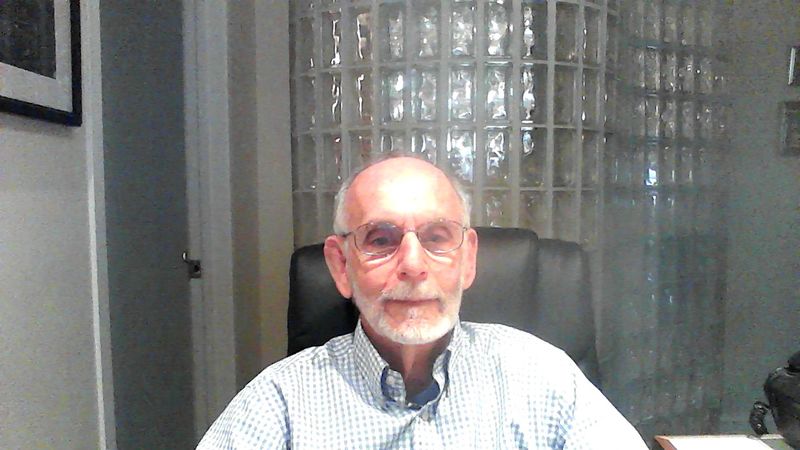By Stephen Seplow
Ask OLLI students what nagging question concerns them most, and odds are that a large fraction will answer “coping with aging.”
This is exactly what Dr. Jay Pomerantz teaches, and why scores of OLLI members take his classes semester after semester.
His course this semester has the intriguing title, “Aging as a Treatable Disease.” He played a taped talk the first session by Dr. David Sinclair, a Harvard biologist, explaining his own intriguing science fiction-like research aimed (no kidding) at rejuvenating aging cells and extending youthfulness by “putting them back to young.”
“I think he’s onto something,” Dr. Pomerantz told his class in his low-key, avuncular manner. The ultimate goal for both Pomerantz and Sinclair is not to live forever, but to live healthier for more years so that death at the end comes quickly, with less pain and with less expense of caring for the old.
“Your main job in older age is taking care of yourself,” Pomerantz said in an interview.
Pomerantz, a 1963 graduate from Yale medical school, has the lean frame of an 82-year-old who has spent hours on bicycles and tennis courts and knows the value and danger of every morsel he puts into his mouth. He has a neatly trimmed gray beard, which seems apropos for a proud gray beard himself.
On the back cover of his book, “A Happy End of Life,” is a photo of Dr. Pomerantz on Cape Cod with a broad smile holding a 32-inch,15-pound striped bass which, he is quick to assure, “we threw it back.”
He says his interest in teaching at OLLI stems in part from his two stints in the Peace Corps, the first for two years starting in 1964, where he cared for 250 volunteers in Panama for a year, and then as Peace Corps medical director overseeing medical volunteers in 15 countries in Latin America. On the second stint, three months in Samoa in 1969, he cared for 200 volunteers and volunteered as a psychiatric consultant in the Samoan health service.
“That experience showed me the value of volunteer help,” he said, “and it fits my value system.”
In the years between those two missions, he completed a psychiatry residency at Massachusetts Mental Health Center, and a fellowship in community mental health at Harvard.
He then went on to seven years as an administrator in the Massachusetts Department of Mental Health, and a 43-year career in private practice, while he also did some teaching and wrote numerous articles for professional publications.
He and his wife Farida moved to Philadelphia the day he retired in 2015, to be near their daughter, Anne, who teaches in the Penn graduate school of education, and two grandchildren. He registered almost immediately in an OLLI conversational Spanish class, which he continues to talk his way through.
Not long afterwards, he started teaching at OLLI, and has since taught several health-related classes. All of his lectures follow the same pattern: first a taped talk by an expert in the field he intends to discuss, followed by questions and his comments.
“I like teaching,” he said. “It keeps me learning. For every video I show I watch 20. And I do some reading.” Further, he said, teaching at OLLI is more challenging than at a typical college because “students have wide interests and experiences and they come from diverse backgrounds."
If this course, its instructor, and the OLLI program sound of interest to you, please don’t hesitate to visit our website,noncredit.temple.edu/olli, call (215) 204-1505 or email [click-for-email], to learn more about the OLLI program.

